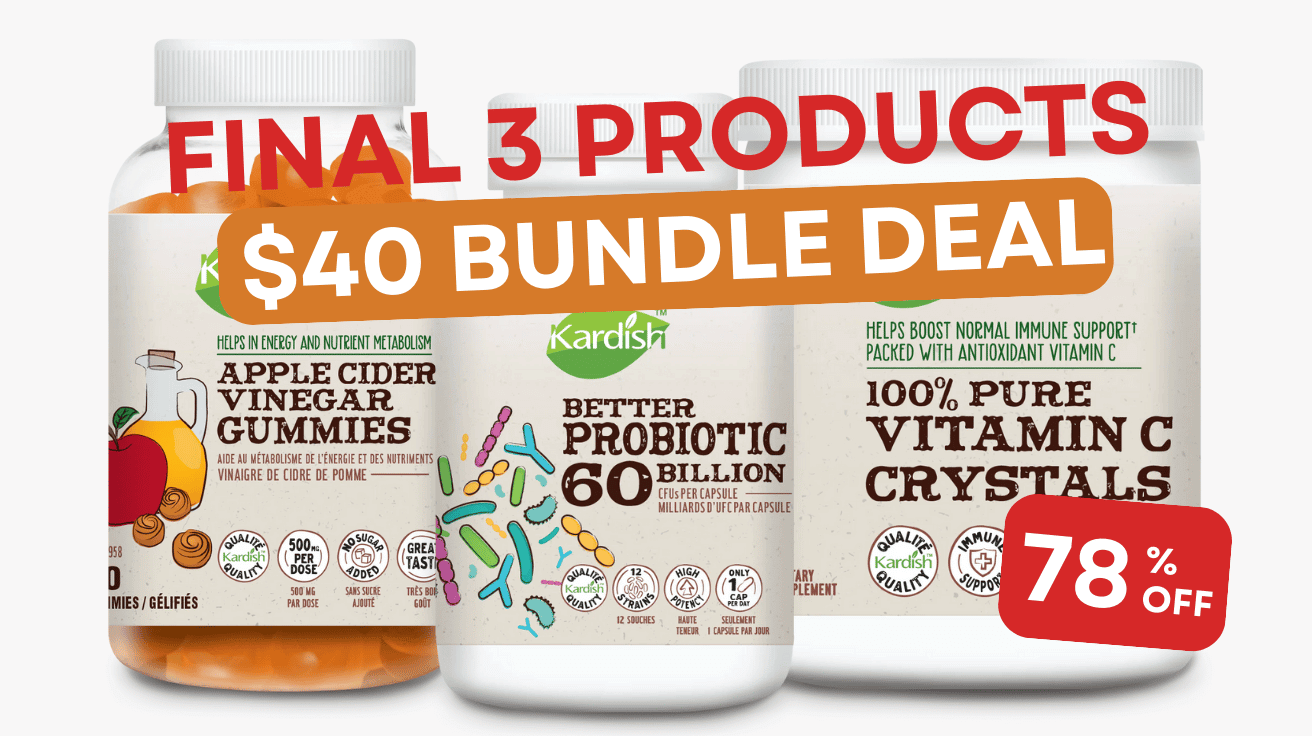
A range of health concerns can be linked back to hormone imbalance -- acne, irregular menstrual cycles, hot flashes, and more. There are lifestyle changes that can help, like reducing stress and eliminating harmful xenoestrogens like those found in plastics. There are also supplements that provide therapeutic dosages of specific nutrients that have been shown to support female reproductive and hormonal health.
But, you may be wondering, what about the foods we eat everyday? Are there certain foods that we can eat more of to support feminine wellness? The answer, simply, is YES, and we’re going to tell you about five in particular!
Broccoli
Broccoli and other cruciferous vegetables like cabbage and kale contain a phytonutrient called indole-3-carbinol. Studies have shown that it has the ability to break down harmful estrogens and reduce risk for hormone related cancers. Like all vegetables, broccoli also contains plenty of fibre, which helps to rid the body of excess estrogen and promote healthy digestion. Eating more broccoli is simple withthis recipe by Stephanie Kay Nutrition!
Tempeh
There’s a lot of debate over soy and and its effects on our health. Some people are concerned by the phytoestrogens found in soy, which may have the potential to mimic estrogen in the body. However, some studies have shown that this type of estrogen might be beneficial and may actually help support hormone levels. If you don’t have an allergy to soy and choose to incorporate it into your diet, try an organic, whole food source like tempeh, a flavourful form of fermented soy beans. We really like this recipe for Marinated Peanut Tempeh.
might be beneficial and may actually help support hormone levels. If you don’t have an allergy to soy and choose to incorporate it into your diet, try an organic, whole food source like tempeh, a flavourful form of fermented soy beans. We really like this recipe for Marinated Peanut Tempeh.
Grass-Fed Butter
Despite a narrative common amongst health professionals over the past few decades that encouraged low fat diets, fats are a crucial part of our diet and their consumption is required to produce cholesterol, which is a vital component of all hormones in the body. Without adequate cholesterol production in our bodies, hormone production can suffer. Organic butter produced from grass-fed cows is an excellent source of healthy cholesterol and fat. Replace processed margarine or conventional butter with this nutrient dense ingredient.
Turmeric
You can thank turmeric for providing your favourite curry with its robust yellow colour. You can also thank turmeric for its incredible anti-inflammatory benefits. Inflammation is associated with a variety of health conditions, including those related to abnormal hormone levels. The active component of turmeric is curcumin, which can be purchased in supplemental form. It can also be part of your everyday diet when you incorporate it into recipes like thisSweet Potato and Cashew Dip.
Himalayan Pink Salt
Unlike iodized table salt, Himalayan pink salts contain naturally occurring trace minerals, which are excellent for overall health. Unfortunately, due to poor soil quality our food doesn’t contain the trace mineral content it once did. Himalayan salt is particularly beneficial for the adrenal glands which sit atop our kidneys and are responsible for the production of a variety of different hormones. The trace minerals act as catalysts for chemical reactions that happen within the body, including those associated with the adrenal glands. Try replacing table salt with a high quality salt like Himalayan or Celtic Sea Salt®.
act as catalysts for chemical reactions that happen within the body, including those associated with the adrenal glands. Try replacing table salt with a high quality salt like Himalayan or Celtic Sea Salt®.



Leave a comment (all fields required)